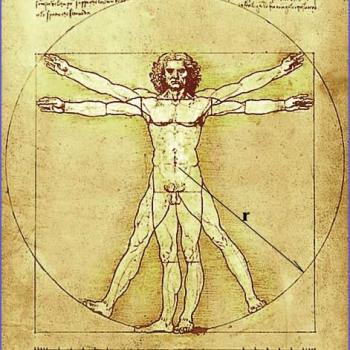
+++
Matthew Garnett, of the In Layman’s Terms podcast and the Federalist, shared an important piece last week on Facebook about Tullian Tchividjian’s Preaching. As I said there in reply to a critical comment (referring to “fear based heretic hunting“):
“I’d say we owe Matthew our thanks for his very insightful and careful article here. Tullian does to, of course! — very kind of Matthew to listen to absolutely everything the man has said, and I detect no mallice towards Tullian from him as well, for which I am thankful.”
Matthew has given me permission to reprint his article here in full (and note that his last three podcasts have also been about Tullian’s preaching, here [most recent], here, and here [I’m on this one to]). Enjoy!
+++
Seven Reasons Why Tullian Tchividjian’s Preaching Is False and Its Dangers to the Gospel
By Matthew Garnett on Saturday, November 4, 2017
Having formerly been a major fan boy of Tullian Tchivijian, having listened to all of his sermons from his time at Coral Ridge, his lectures at “Liberate”, and now seeing him emerge again with his tullian.net site, I have realized I was dead wrong to embrace his teachings and here’s why.
1. He never warns his people of the dangers of apostasy.
Being trained at perhaps the finest Reformed seminary in the country, Westminster, Philly, Tchividjian is in that all too uncomfortable place of “unconditional election” and “limited atonement”. There, you have two options: 1) preach that you might be of the elect since you seem to be doing good works and hanging around the church, but then again maybe not because you might stop doing those things, or 2) preach “once saved always saved” like Tchividjian does in his oft quoted cliché “You’re in forever!”
The only problem with that is the bible warns of apostasy all over the place. Of the two options, the first seems the safest bet, albeit still inadequate. Going with the latter option, biblically speaking, gives a false comfort.
2. He never warns of the temporal punishments of sin.
Of all the people who should be acquainted with the natural consequences of sinful behavior, Tchividjian continues to cruelly withhold that information from people. While he certainly laments his behavior on the new “tullian.net” website, I have yet to find a sermon or blog post there that warns others of the inherent dangers of disobedience to God’s commands. Furthermore, he’s seen fit to post his sermons from Coral Ridge there. Not one of them warns people of the destructive consequences of sin.
I will agree with Tchividjian that there is hope for everyone who has made complete shipwreck of their lives. However, preaching that warns us of this in order that we may avoid such disastrous consequences should be an emphasis in instructing in God’s law. He does a fine job of letting people know that any sin, no matter how severe, is forgiven in Christ, however, he fails to warn people of these dangers. Both should be preached in proper law and gospel preaching.
(NB – the majority of my report here is dealing with Tchividjian’s sermons on the “tullian.net” site and not his blog posts)
3. He never teaches obedience.
In fact, he teaches against teaching on obedience. Yes friends, we are saved by grace through faith, and obedience to the commands of Holy Scripture is a part, in fact a requirement of the Christian life. To say otherwise (which Tchividjian does), is to make total non-sense of about a half to two-thirds of the bible. Tchividjian decries people who preach “clean up your act”, but you don’t have to read very far into 1 Corinthians to realize that St. Paul is preaching precisely this to the Corinthians.
4. The only sin in his book is only a certain kind of self-justification.
There are three forms of self-justification. 1) You believe obedience to God’s law will justify you before Him. (think “Pharisaical legalism”), 2) You’re struggling to overcome a sin. So instead of continuing to repent of that sin, calling that sin a sin, believing that it is forgiven for Christ’s sake, and wanting to do better, you just stop calling that sin a sin. (Sexual sins tend to fall into this category) 3) Thus, you begin creating your own rules by which you can justify your existence.
Tchividjian fails to preach #’s 2 and 3. And not only this, while he recognizes that this is the ultimate sin, he fails to realize that other, perhaps “lesser” sins act as “gateway sins” to the ultimate sin. For instance, if I have a problem with stealing pens from my company. Instead of recognizing that theft, at any level, is a sin against the 7th commandment, I justify that sin saying, “Oh well. My company doesn’t pay me enough anyway so I’m justified in stealing their property.” Now I will admit that he does attempt to preach #3 on occasion. He does warn of dumbing down the law, but not for the purposes of instructing in obedience, but for the purposes of demonstrating that you cannot obey. The problem there is, if we do not hold ourselves behaviorally to the standard of Scripture, then we’re going to default to some lesser standard. Tchividjian seems to think that most people, even most Christians trend toward #1 when in fact it is quite the opposite. Most realize they aren’t cutting it when it comes to obeying God’s law, so instead of repentance, they self-justify their evil misdeeds.
5. False teaching of the “light life”
Strewn throughout his sermons is this notion of the “light life”. When confronted with the commands of Scripture in certain passages, Tchividjian will say something to the effect of, “This is what it looks like to lead a lighter life.” This is yet another twist on the Osteen quip of “Your Best Life Now”. Nowhere in Holy Scripture will you find that the Christian life is one of ease and “lightness”. In fact, as a baptized believer in Christ, the war and struggle has just begun. If you’re looking for an easy and light life, I would not recommend becoming a Christian. Note well, this is not the gospel. The calling of a Christian is one of struggle and discipline and self-sacrifice in this life. To preach this only gives a person a false sense of comfort.
6. The false gospel of “God’s perfect demands” and “you’re not pulling it off”
When Tchividjian attempts to preach the law, he preaches it as something that must be done perfectly or not at all. Here, he, at least partially, misunderstands what God’s law is. The law is not a description, even in theory, of how one attains eternal life. It is a description of what man was created to be and how he was created to act. It is how Adam and Eve behaved in the garden before the fall. It is how we will behave in the hereafter.
To preach the law as something given in order to gain eternal life, in any sense, is a confusion of law and gospel. The only remedy for our rebellion against God’s created order is the person and work of Christ. Thus, Jesus restores us, in part now and fully in the resurrection, to what we were created to be. Having been raised from death to life with Him means that we now can make a beginning of being alive as we were meant to be and cease to exist as dead people.
So for Tchividjian to preach, “God demands perfection and you’re not pulling it off” is to say that you’re dead and all you’ll ever be is dead. But that’s not what St. Paul preaches is it? (viz Rom 6) And this “gospel” of Tchividjian’s sounds really good to the itching ears of dead people. “What?”, they’ll ask, “I don’t have concern myself with living how God created me to live? That’s the best news I’ve heard in a long time! I was so tired of struggling to be alive. I’m much happier being dead!”
The really sad irony in this preaching is that, while it’s meant to be comforting, just like any false gospel, it leaves the person in bondage to sin, death, and the devil. It tells you that you’re simply going to keep existing as a dead person in this life and there has not been nor will there ever be something done about this sad state. It is in fact a denial, in part, of the gospel.
7. Preaching gospel to unrepentant sinners
Over and again in Tchividian’s sermons, we find him recommending that if someone is living an unclean life and is happy doing so, the answer is not to “tell them to clean up their act”, the answer is to preach the gospel to them. His final solution to all of this is to say (and this is in summary form), “Be perfect” then “You can’t be perfect” then “It doesn’t matter because Jesus was perfect for you”.
That is a far cry from calling people to genuine repentance. “Being sick and tired of trying at life” does not equal biblical contrition. Being terrified at the wrath of God you deserve for your sinful, destructive life and sorrowful for your rebellion against Him and how you’ve hurt others with your sin is biblical contrition that leads to true repentance. Telling someone essentially that “nobody’s perfect but Jesus was” is a watered-down version of law and gospel preaching at best.
Perhaps what is most deceptive is that Tchividjian and others of his ilk frequently insist that preaching the free gift of grace in the gospel does not carry the risk with it that people will misunderstand it and use it as an excuse for licentiousness. Over and again, all of the New Testament writers warn of this, but Tchividjian’s answer to this is much different. He maintains that the answer to this problem is “going deeper into the gospel”. As with any sin, this misbelief should be met with the law which is precisely what St. Paul, St. Peter, and St. James do in their epistles. Not so with Tchividjian. Here again, he preaches gospel when the biblical move is to preach the law to correct this misunderstanding.
The Dangers of Tchividjian’s preaching and teaching
1. Licentious living
Tchividjian all but gives permission to his audience to continue in living destructive lives. Let’s not forget what sin is and what it does. First of all it is a “high handed rebellion” (a Hebraism for what we would call “flipping the bird”), to God. “God you created me to be this way? Well forget that! I’m going to act however I want to act….” is the idea here.
Secondly, when Tchividjian flippantly says, “You’re not pulling it off” think about what that means for those around you. If I’m not pulling off being a good employee for my employer, that means not only will he suffer, but my wife and children are going to suffer. “Not pulling it off” when it comes to obedience to God’s commands means you are wreaking destruction on everyone around you. It also places your faith at risk. As stated, he fails to warn people of these dangers.
2. The Gospel is lost
This is the greater consequence to this false teaching. As I am wont to say, “The degree to which you lose the law is the degree to which you lose the gospel.” The most deceptive false teachers preach part of the truth with some key lies sprinkled in among what is right. Tchividjian preaches rightly that we will not be perfect in this life, but then turns and says tying to live as we were created to be is not to be attempted. Preaching the law in its full sternness means preaching that, yes, God demands perfection *and* that we should strive, struggle, and fight to be that, even though failure is guaranteed. Only in this context does the gospel make sense and enter into our lives in its full sweetness.
Indeed, we merely assume that “failure is guaranteed”. The Scriptures don’t speak this way. Jesus, St.Paul, St. James, and the rest do not add the tag line “but you’ll surely fail in this” to their many exhortations and commands to us. Why? Well first of all, if we take those passages seriously, our Lord and these men writing under the inspiration of the Holy Spirit expect obedience from us as once dead and now alive men. Secondly, this kind of preaching is sure to do the work of driving us again and again to the cross of Christ and His saving power. Most tragically, Tchividjian’s preaching utterly fails in this task for the reasons stated.
+++
In addition to Matthew’s article, I also offer this recent post from Jon Alan Schmidt at my blog, The Lutheran Catechism: Law, Gospel, Discipleship, as well as this recent talk from Pastor Cooper, Good Works in the Christian Life, which I think complement Matthew’s points very well:
FIN
Images: Tullian Tchividjian, preaching at Coral Ridge Presbyterian Church on March 13, 2011, User:DashHouse. The original uploader was StAnselm at English Wikipedia, licensed under the Creative Commons Attribution-Share Alike 3.0 Unported license.












